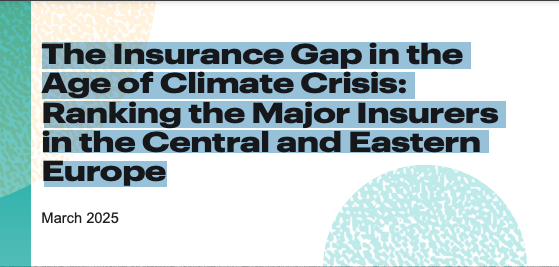Lawyers have spelled out the legal risks for UK pension funds and their advisors that fail to act on climate change. Two reports published by Client Earth, one each for actuaries and consultants, make clear their obligations and the ways they need to consider and manage climate risk in line with regulator guidance.
Safeguarding the retirement of billions globally while acting as major investors, it’s plain that pensions providers need to understand what climate change means for their business and the plan holders they ultimately serve. The reports mark another step forward in this process, helping pension professionals get up-to-speed.
Today’s investment decisions affect the planet for decades to come. A rapid shift of capital toward green investments is needed to tackle climate change, just as its essential money stops flowing into the fossil fuel projects that are the leading cause of the problem in the first place.
An increasing number of pension providers understand this and are acting accordingly. Monitoring and managing the risks posed by climate change is about far more than simply doing the right thing. It’s about common business sense for the pension funds and their customers, just as it is a clear moral obligation and legal duty to act.
Norway’s leading private pension fund Storebrand – with an investment portfolio of $80 billion – sets a clear example for others to follow. The first step it took was understanding its exposure to climate change. It then began withdrawing its investments in coal companies from 2013, having joined the dots between its investments and the damage they caused. Coal is the single largest source of the carbon dioxide emissions that drive climate change.
It announced it was turning its back-on another tranche of coal companies in November and is taking $13.42 million of investments with it as part of the process. Its CEO explained: “The coal industry simply has to go if we are to meet climate targets. There is no such thing as clean coal but there are clean and profitable alternatives like solar and wind.”
Storebrand has at the same time, been expanding its fossil fuel free funds, which have delivered returns of 32 per cent, as investments in solar and wind energy from Australia to the United States pay-off. “Assets that kill don’t make for good investments”, its CEO said about coal. It seems the reverse is true for clean energy.
Many more need to follow where funds like Storebrand have set the lead. Investment consultants Mercer, have shown that just 5 per cent of European pension schemes have considered the investment risk posed by climate change. This simply isn’t good enough. (As it happens, Mercer’s owner Marsh, a leading insurance broker for fossil fuel companies, is not considering the climate risks of its business either.)
Understanding what climate change means for customers is a non-negotiable as Client Earth show. But on the basis of performance shown by Storebrand and others like them, it’s those pension providers that act on this information that will fare best. As the regulatory imperative to act becomes increasingly clear, so too are the benefits of ditching poor performing dirty fossil fuel investments such as coal, and opting instead for clean renewables that deliver a better return for both investors and the planet.



